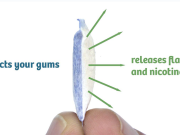The joint research team from the three groups will examine the airborne particulate aerosols and volatile organic chemicals released during vaping and aim to determine human exposure levels and potential toxicity for users and bystanders. “With a focus on public health and safety benefits, our research findings will provide data on specific particles and chemicals and their exposure levels so that human health impacts may be further understood,” said Dr. Marilyn Black, vice president and senior technical advisor at the Chemical Insights Research Institute.
UL said that this initiative, which includes a team of highly skilled researchers and technical facilities, was established with the aim of addressing a gap in research knowledge pertaining to vaping. “This study will provide scientifically sound data to inform policy makers, healthcare providers, manufacturers, and consumers of potential health risks and approaches for product usage and warnings to educate consumers of potential respiratory hazards,” said Dr. Roby Greenwald, co-principal investigator, GSU. “We’re looking at multiple liquids and aerosol delivery methods that are readily available to better understand toxicity and their impact on human health.”
Study says vapers had 19% higher odds of developing Asthma
Meanwhile, another recent study by researchers from The Hospital for Sick Children, St. Michael’s Hospital and University of Toronto in Canada, reported that vapers had 19% higher odds of developing Asthma.
Titled, “Does Vaping Increase the Odds of Asthma?: A Canadian Community Health Survey Study,” the current study analyzed data from 17,190 people ages 12 and above, in the 2015-2016 and 2017-2018 cycles of the Canadian Community Health Survey (CCHS). The study looked at who participated in the CCHS survey.
The compiled data indicated that 3.1% of the selected survey participants reported using an e-cigarette in the past 30 days. The authors found that of these, 19% had a higher chance of developing asthma, as opposed to 20% in current smokers. Former smokers had 33% higher odds, and never smokers or never vapers didn’t have significant associations with asthma.
Read Further: News-Medical












